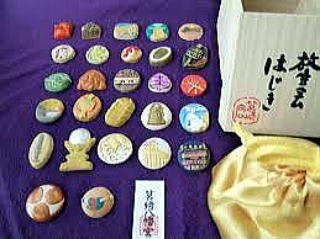花子とアン150話より英語台詞と対訳 (JOCKでのGHQの軍曹、将校と花子さんとの英語対話、あなたは、まるでポーシャのようだ。どんな朝でも美しい。曲がり角の先。)
軍曹(triple chevron)と花子さん、大尉(two silver bar)と花子さんの会話が聞きづらかったので、多少間違っているかもしれませんが、このようになっているのではないかと思います。その上、軍曹はガムを噛みながらのセリフだったので余計そう感じる方も多かったのではないでしょうか。
また、訂正箇所や間違いのご指摘を喜んで受け付けますので、コメントしてください。 よろしくお願いします。Sergeant(軍曹): Hey! Mama-san. Today's copy.
やあ、ママさん。 今日の原稿だ。
It's been censored off. 検閲すみだからな。
We think if you do making changes, don't.
勝手に変更すなよ。
花子さん: Yes, I know. 承知しています。Sergeant(軍曹): Wow! ああ。
You're a only chibi but you can really speak English! Huh!
あんたそんなにチビなのに本当に英語がしゃべれるんだな。
How about that? どうなんだい。
花子さん:Chibi? チビですって。
Sergeant(軍曹):Don't cause any trouble. 問題を起こすなよ。
Ah! Find a fine fountain pen! あっ! いい万年筆だな。
Can I have it? くれよ。
ラジオ局の男性職員: あっ! あっ! この万年筆は、父の形見で。
Sergeant(軍曹):How was that? それが、どういうことなんだい。
Could you hear what I just said? 言うことが聞けないのか。
Who won the war? 戦争に勝ったのは誰だ。
花子さん:Mister! ミスター
Sergeant(軍曹):You gotta problem! Mama-san?
なんだよ。ママさん。
花子さん:I believe that the pen is a keepsake of his father.
その万年筆はお父様の形見だそうです。
So give it back. 返しなさいよ。
ラジオ局の黒沢: 村岡先生。
花子さん:Yes! Japan lost the war.
確かに。日本は負けました。
But do you think that give us the right of behavior like this?
だからといって、そんな傍若無人に振舞っていいと思ってるんですか。
You meet the woman for the first time.
初対面の女性対して。
And say Mama-san. ヘイ、ママさんなどと。
You should be ashamed. 言うのは失礼です。
Sergeant(軍曹):No! No! No! いや、いや、いや。
花子さん:Be quiet! だまりなさい。
You are a member of the occupation force.
どうか進駐軍の一軍人として。
So act like one! 品位ある行動をしなさい。
Officer(将校):You heard the lady said! このご婦人と言うとおりだ。
Get out the gam now! 今、ガムを出して。
And apologize! そして、謝罪しろ。
Sergeant(軍曹):(ここで万年筆を返す)
I sincerely apologize, ma'am! 申し訳ございませんでした、マダム。
Officer(将校):Wait for me outside! 退出しろ。
Sergeant(軍曹):Yes, sir! はい、上官殿。
Officer(将校):Right apologize for some our man's rudeness!
部下の非礼をおわびいたします。
I'm sorry. 失礼いたしました。
ラジオ局の黒沢: あのー、何と。
花子さん:部下の非礼をお詫びしますとおっしゃてます。
Officer(将校):You know you're almost like Portia.
あなたは、まるでポーシャみたいだ。
Do you know mean by Portia?
ポーシャを知っていますか。花子さん:Yes! はい。
Love William Shakespeare's Merchant of Venice.
好きなウイリアム・シェークスピアのベニスの商人です。ああ、これで花子とアンの英語対話も終わりですね。少しさみしいですが、次のマッサンではスコットランドの英語が楽しみですね。














